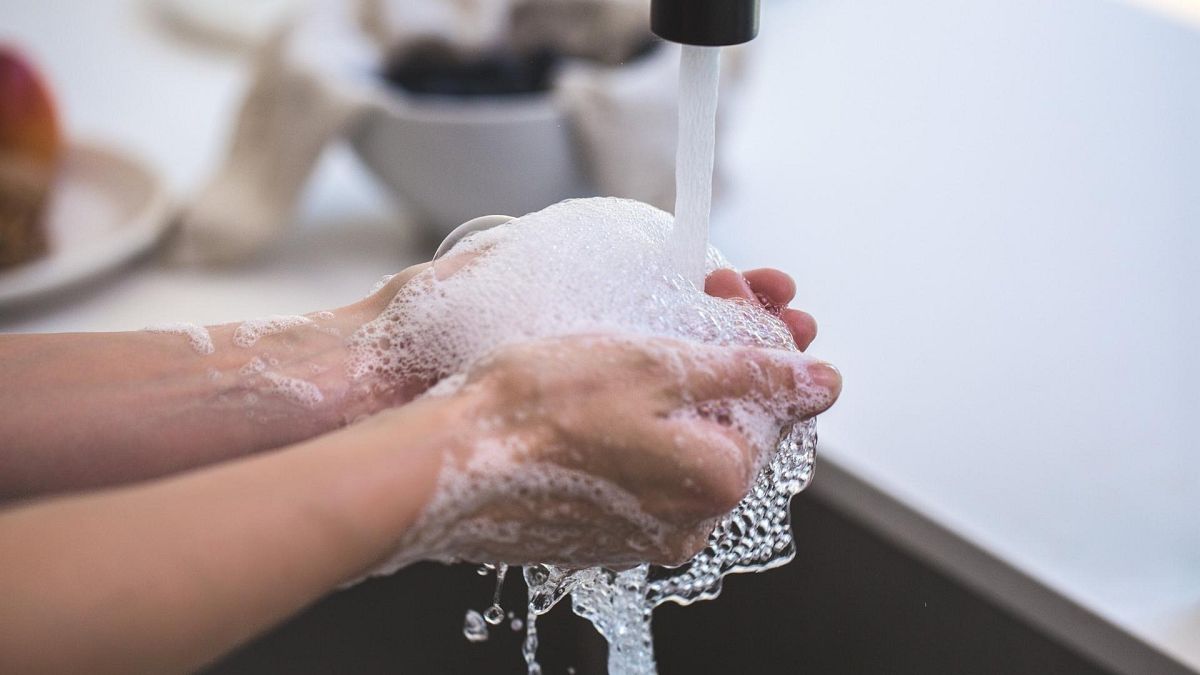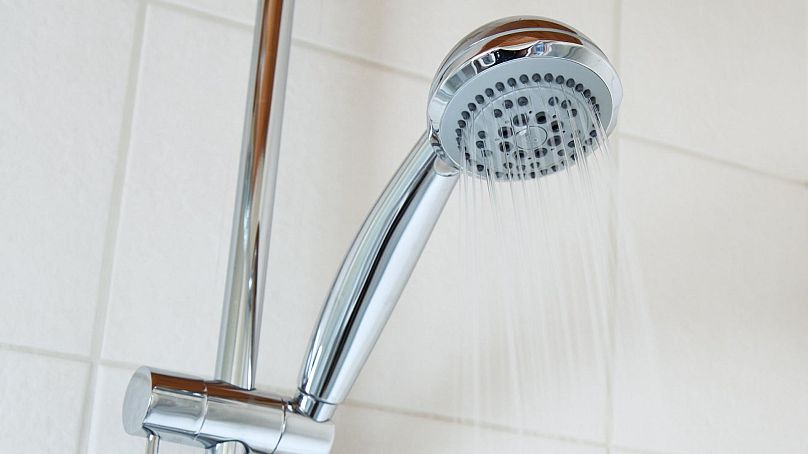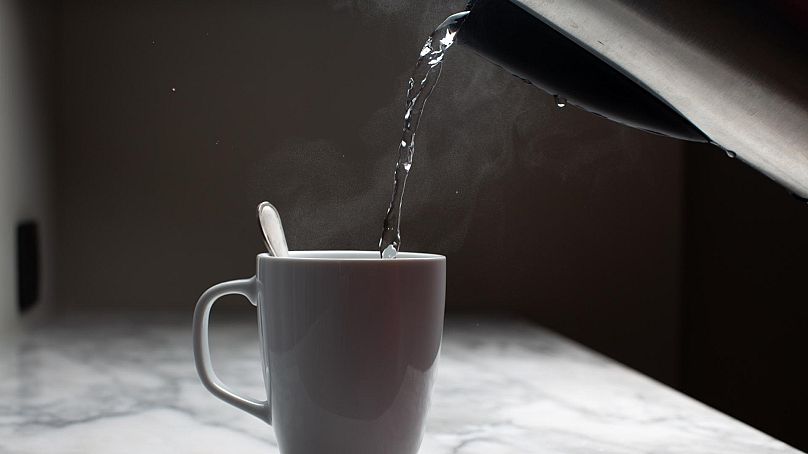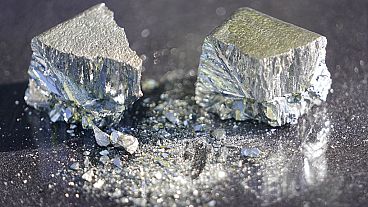Water is likely to be limited for decades to come so don’t rely on restrictions to tell you when you should be saving the life-giving liquid
Europe is in the middle of one of the driest summers it has ever seen, with supplies in reservoirs dropping to record lows.
In Portugal and Poland, people have been asked to cut down on water use to ease the pressure. In some Spanish towns and villages, water only comes out of the taps for four hours a day. In the UK, some water providers have announced restrictions on water use that will affect millions of people.
How are the EU nations responding? They’ve been urged to reuse wastewater - recycling being key if we are to adapt to the changing climate.
Across the continent, people are being asked to use less water in every area of their lives to make supplies go as far as possible.
But it isn’t just in times of drought that we should be watching how much we use.
Why should we be saving water all of the time?
Water is a precious resource and thinking about how much we use shouldn’t be reserved for times of extreme shortage.
For one, reducing your water consumption also saves energy.
Most of us don’t think about the energy used to treat and pump the water into our homes, but water companies are some of the biggest consumers of power out there. By saving water where you can, you’re also cutting carbon from the power used to bring it to your tap.
With the climate and water crises more closely linked than they might seem, shortages are only likely to get worse if global warming continues too. Extreme weather events make supplies difficult to predict and droughts are becoming ever more frequent.
Good habits when it comes to saving water can not only save you money but also mean that any minor restrictions which are introduced don’t feel like a big deal.
So what can you do to cut the amount of water you use?
11 water saving tips for Europe’s driest summer on record
We all know the basics when it comes to saving water like turning off the tap while you clean your teeth or taking a shower rather than a bath. Just because we know them, however, doesn’t mean we do them.
We’re all guilty of mindlessly brushing our teeth, so simply focusing on what you’re doing can be one way to be mindful of what you’re using, where it comes from and who else might be in need of it. Experts say that being in the moment like this can also make you calmer, happier and less stressed.
If you’re looking for some more unusual, and hopefully memorable, tips on how to save water this summer and beyond, then this list is for you.
11. Install a dual-flush toilet and choose your flush wisely
This isn’t a simple fix but it will quickly earn you back the money you spend making the upgrade. A dual flush system has two options that vary depending on how much water you need to wash away your waste.
A large flush often uses between six and nine litres of water in one go whereas a small flush only uses between three and four. That means using the correct flush could save up to 60 per cent of the water with each use.
Many modern homes already have these kinds of toilets installed so it could just be a case of making sure you flush right every time.
10. Put a bucket in the shower to fill your watering can
The wait while the shower warms up isn’t just unpleasant, it also wastes water too. To make use of this unused runoff, put a bucket under the flow to catch the water.
Carefully move it to outside the shower before you start soaping up and then you can use this to fill your watering can. TikTok user @relauren shows us how it's done here.
9. Collect water from your roof to water your plants
With hosepipe bans in place in many locations, it could be time to look for an alternative way to water your plants. If you live in an area where there is still decent rainfall, you could harvest this water as it falls on your roof and store it in a water butt.
Or if you don’t have a water butt, simply put a container under the bottom of the drain pipe to catch the run off before it goes down the drain.
This water can then be used to keep your garden green instead of switching on the hose.
8. Fill your garden with native plants
Native plants are likely to need less water as they are more suited to the environment you live in. You can still have an incredible garden without the high water bill needed to keep it alive.
As an added bonus you’ll also be encouraging local populations of pollinators helping to keep your garden filled with biodiversity.
If you’re fed up with worrying about keeping your lawn green then it might be time to consider something different altogether. TikTok science communicator Alaina Wood has some great ideas.
7. Fill a jug with tap water and put it in the fridge
This one not only saves water but avoids using plastic bottles too. If you are guilty of letting the tap run until the water goes cold, try filling a jug and putting it in the fridge instead.
You’ll have ice-cold water any time, all without sending litres down the drain before it reaches your preferred temperature.
6. Make sure you run a full load in the dishwasher and washing machine
You might be surprised to learn that running the dishwasher actually uses less water than washing up by hand. But that’s only the case if you make sure it is full before turning it on. The same goes for washing machines too.
So fill them up before turning them on and try to use the eco-mode setting. It’ll save you money on both your water and electricity bills.
5. Fit a low-flow shower head
Showering is one of the major sources of water consumption in most homes. A low-flow shower head could help you to fix that by restricting the volume of water that passes through with every minute you spend lathering up. They’re also inexpensive and really help to improve the water pressure with old shower heads.
By reducing water flow, they also save on the amount of energy needed to heat your shower.
4. Keep your showers short
While we’re on the subject of showers, the shorter the better. Cutting your daily shower from eight minutes to just four could save around 36 litres of water with every wash.
Don’t fret long shower lovers, a water saving timer could help make it easy for you to cut consumption when you wash. They’ll let you know when you have used more than 35 litres and many water companies will give these away for free.
If you want a jazzier way to time your showers, others suggest making a four minute playlist. Once the music stops, it's time to get out.
3. Check for water leaks
Along with the annoying sound of a constant drip, a leak can waste a lot of water very quickly. If your bill has suddenly increased for no logical reason, it could be a sign that you have a problem with your plumbing.
If you have an accessible water meter, you can easily see if there is a leak in the system. Take a reading then don’t use any water for 30 minutes to an hour. If the reading changes, there’s a good chance you have a problem.
2. Don’t fill your kettle up for just one cup of tea
This is one for our UK audience. When making a brew, only put the amount of water you need into the kettle. It’s tempting to fill the kettle all the way up but many of us simply pour out the extra water the next time we go to make tea or coffee.
But by boiling just a cup or two, you’ll not only save water but energy too.
1. Use a bowl to wash fruits and veggies
A running tap uses around 15 litres of water every minute. So, when you are rinsing your produce, try using a bowl instead. Simply fill the bowl then rinse the fruit or vegetable in it piece by piece
This will cut down on the water you use and instead of tipping it down the drain when you are done, you can also use this to water your plants.





